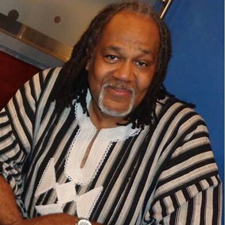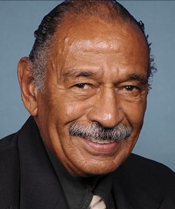Sessions’ push for strong prosecution blasted as new war on Blacks
By Askia Muhammad -Senior Editor- | Last updated: May 31, 2017 - 9:40:57 AMWhat's your opinion on this article?

|
WASHINGTON—Attorney General Jeff Sessions issued a controversial May memo directing all 94 U.S. federal prosecutors to punish crimes—including even non-violent drug offenses—with the most “serious, readily approvable offense” in all cases moving forward.
The move was quickly condemned as anti-Black, and for reviving “a warlike mentality towards poor people and people of color,” and for reviving “draconian sentencing” policies of the Nixon administration.
In the memo, Mr. Sessions directed federal prosecutors May 11 to bring the most “serious, readily approvable offense” charge in all cases moving forward.
More than a dozen state attorneys general quickly sent Mr. Jeff Sessions a letter asking him to rescind the charging guidance he sent. A week later, the group had grown to 30 current and former state and local prosecutors.
“The increased use of mandatory minimum sentences will necessarily expand the federal prison population and inflate federal spending on incarceration,” the prosecutors said in their open letter.

Dr. Ray Winbush
|
“I think it’s clear by the rhetoric coming out of the Justice Department today that they are committed to reviving a warlike mentality towards poor people and people of color,” Michelle Alexander, author of “The New Jim Crow: Mass Incarceration in the Age of Colorblindness,” in an appearance on “Democracy Now!”
“And I think we need to respond forcefully, with as much courage and compassion as we can muster in these times,” Ms. Alexander continued.
The guidance paves the way for more prosecutions of non-violent drug offenders and tougher sentences, specifically rescinding instructions issued by then-President Barack Obama’s Attorney General Eric Holder in 2013 that encouraged prosecutors to use their discretion when filing criminal charges—especially in low-level drug offenses and other cases that elicited mandatory minimum sentences.

|
“The only reasoning behind that must be racial,” he continued. “It goes back to the letter that Corretta Scott King wrote years ago when he was denied a federal judgeship, and if you read that letter, you can see his motivation,” said Dr. Winbush.
In that letter, which helped persuade the Senate to not confirm then Alabama Attorney General to a federal judgeship, Mrs. King was passionate. Allowing Mr. Sessions to join the federal bench would “irreparably damage the work of my husband,” Mrs. King wrote. The letter was previously unavailable publicly until it was obtained by The Washington Post at the time of his confirmation hearings.
“Anyone who has used the power of his office as United States Attorney to intimidate and chill the free exercise of the ballot by citizens should not be elevated to our courts,” Mrs. King wrote in the cover page of her nine-page letter opposing Mr. Sessions’s nomination, which failed. “Mr. Sessions has used the awesome powers of his office in a shabby attempt to intimidate and frighten elderly black voters. For this reprehensible conduct, he should not be rewarded with a federal judgeship.”
In the letter, Mrs. King wrote that Mr. Sessions’s ascension to the federal bench “simply cannot be allowed to happen,” arguing that as a U.S. attorney, the Alabama lawmaker pursued “politically-motivated voting fraud prosecutions” and that he “lacks the temperament, fairness and judgment to be a federal judge.”
“The irony of Mr. Sessions’ nomination is that, if confirmed, he will be given a life tenure for doing with a federal prosecution what the local sheriffs accomplished twenty years ago with clubs and cattle prods,” she wrote.

Attorney General Jeff Sessions (right) addresses the crowd with opening remarks during a Drug Enforcement Administration (DEA) 360 Heroin and Opioid Response Summit as U.S. Attorney for the Southern District of West Virginia Carol Casto (left) listens to him on stage at the University of Charleston, May 11, in Charleston, W.Va. Photo: AP/Wide World photos
|
President Trump plucked the Republican out of the Senate and installed him as America’s chief law enforcement officer.
“Charging and sentencing recommendations are bedrock responsibilities of any prosecutor, and I trust our prosecutors in the field to make good judgment,” Mr. Sessions said at a news conference in Washington announcing his changes. “They deserve to be un-handcuffed and not micromanaged from Washington.”
But Mr. Sessions ignores much, according to Ms. Alexander. “There is a human cost as well. Instead of providing people who commit low-level drug offenses or who are struggling with mental illness with treatment, support and rehabilitation programs, the policy will subject them to decades of incarceration.
“In essence, the Attorney General has reinvigorated the failed ‘war on drugs,’ which is why groups ranging from the American Civil Liberties Union to the Cato Institute to Right on Crime have all criticized the newly announced policy,” she said.
“I’m going to be optimistic and say, he’s not going to get away with it, because he’s going to get caught up in this Russian scandal, and keep in mind, he had to recuse himself from that investigation,” Dr. Winbush pointed out. “I think that he’s going to be thwarted, probably not by the court, but by his own undoing about his complicity in this Russian meddling in the election.”
Details about Mr. Sessions’s conduct with Russian operatives during Donald J. Trump’s presidential campaign have surrounded him. CNN reported May 23 that Mr. Sessions did not reveal his two meetings last year with Russian Ambassador Sergey Kislyak, not even when he applied for his security clearances to serve as attorney general. These are the same two meetings Mr. Sessions failed to disclose during his confirmation hearings before the Senate Judiciary Committee.

John Conyers
|
“In the face of an ongoing investigation into the Trump campaign’s contact with the Russian government—an investigation from which Mr. Sessions is recused because of his failure to disclose similar contacts—the Attorney General’s decision to omit this information from his security clearance application demands the House Judiciary Committee’s careful review,” Mr. Conyers said in a statement.
Jefferson Beauregard Sessions, III was named after his grandfather, who was named after Jefferson Davis, the president of the Confederate States of America and P.G.T. Beauregard, the Confederate general who oversaw the bombardment of Fort Sumter, starting the American Civil War.
Attorney General Sessions suffered another embarrassment in late May, when crews in New Orleans removed a 106-year-old statue honoring Gen. Beauregard, who helped craft the Confederate battle flag.
His was the third of four sculptures the city voted to remove in 2015. Later, crews wearing bullet-proof vests and masks to hide their identity removed the statue of Jefferson Davis as well. “Today we take another step in defining our City not by our past but by our bright future,” New Orleans Mayor Mitch Landrieu said in a statement.
“While we must honor our history, we will not allow the Confederacy to be put on a pedestal in the heart of New Orleans,” the mayor said.
Mr. Sessions denied that he’s ever been racist. “I did not harbor the kind of animosity and race-based discrimination ideas I was accused of,” he said during his confirmation hearings. “I did not.”
But his critics insist there is ample evidence to the contrary. Among the allegations which came up during his failed confirmation to become a federal judge, there were reports that he called a Black attorney “boy;” that he suggested a White lawyer working for Black clients was a race traitor, and that he referred to civil rights groups as “un-American” and trying to “force civil rights down the throats of people who were trying to put problems behind them.”
Crime rates, that may fuel the pool of defendants who will be targeted by the new Sessions policy, are decreasing. “The good news is that if you look at violent criminal arrests, particularly in the area of narcotics, drug possession, drug selling, they declined sharply over the past 10-15 years,” said Dr. Winbush. “That’s not only just during the Obama administration, but during the Bush administration, particularly in the second term.”
INSIDE STORIES AND REVIEWS
-
-
About Harriett ... and the Negro Hollywood Road Show
By Rabiah Muhammad, Guest Columnist » Full Story -
Skepticism greets Jay-Z, NFL talk of inspiring change
By Bryan 18X Crawford and Richard B. Muhammad The Final Call Newspaper @TheFinalCall » Full Story -
The painful problem of Black girls and suicide
By Charlene Muhammad -National Correspondent- » Full Story -
Exploitation of Innocence - Report: Perceptions, policies hurting Black girls
By Charlene Muhammad -National Correspondent- » Full Story -
Big Ballin: Big ideas fuel a father’s Big Baller Brand and brash business sense
By Bryan Crawford -Contributing Writer- » Full Story






 Click Here Stay Connected!
Click Here Stay Connected!








